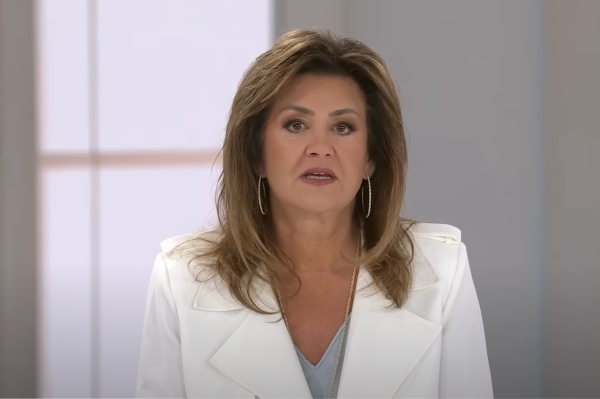Fear Tactics Revealed in Zimbabwe Election Video
A video filmed using a hidden camera showed how Zimbabwe's runoff election was not free nor fair as citizens were forced to vote for President Robert Mugabe in last month's runoff election.
The film, made by a Zimbabwe prison officer, was posted on U.K.'s The Guardian Web site Saturday. Officer Shepherd Yuda has since fled Zimbabwe with his family to an undisclosed location out of fear of retaliation by the Zanu-PF Party.
In the video, a senior official part of Mugabe's party handed out ballots to Yuda and other prison workers and watched as they voted. It can be assumed that the prison officials felt they had no choice but vote for Mugabe or else face the consequences for voting for the opposition.
Later in the video, Yuda says into the camera that making an "X" next to Mugabe's photo in the ballot "was the most difficult moment of my life."
"I had never seen that kind of violence before," Yuda said in a video diary, according to Reuters. "How can a government that claimed to be democratically elected kill its people, murder its people, torture its people."
The film also shows well-known prisoners, including No. 2 opposition leader Tendai Biti and civil rights activists Jenni Williams, who have since been released on bail.
Earlier last week, more than 200 Zimbabwean opposition supporters camped at the U.S. Embassy in Harare out of fear of being targeted by President Robert Mugabe's cronies.
The refuge-seekers had first gathered at the embassy on June 26 explaining they were supporters of the Movement for Democratic Change Party whose homes were destroyed by Mugabe's party members, according to a journalist at the scene to CNN. The group also said they were being chased by supporters of the ruling party.
"The people I can see right now look very miserable, dejected, confused," said the reporter, whose name was withheld for security reasons.
MDC officials several times alerted that its supporters have been killed, injured and threatened by Zanu-PF members since the March presidential elections, and especially around last month's runoff election.
At least 80 opposition supporters were killed before the runoff, and more than 10 more of its members have been killed since, according to The Associated Press.
Opposition leader Morgan Tsvangirai himself took refuge in South Africa and also in the Dutch embassy. He withdrew from the June 27 runoff election the weekend before the vote, citing election-related violence and the impossibility of a fair election as the reasons behind his decision.
"The U.S. is and will remain a friend of the people of Zimbabwe," said U.S. Ambassador James McGee on America's Independence Day, according to AP. "As we celebrate here I want to remind you of the suffering that is taking place so very nearby.
"They (220 Zimbabwean refuge-seekers) were exposed, hungry and with little hope for the future," he said.
The African Union has called on the two Zimbabwean parties to talk and find a peaceful resolution to their power struggle. Mugabe has said he is willing to hold discussions if the MDC recognizes him as the country's rightful president. The opposition party has rejected that idea, saying that the election was not fair.
"We pray for negotiations between partners fully committed to finding one another and ending the desperate suffering of their people," said the Most Rev. Thabo Makgoba, Archbishop of Cape Town, in a statement Friday about negotiations between Zimbabwe's political parties. "A lasting settlement would breathe hope and transformation into our common life in Southern Africa."
Mugabe, who has been Zimbabwe's only leader since its independence from Britain in 1980, arrived back home from the African Union summit on Friday. He declared that anyone that wants a dialogue with him must accept that he is the president-elect of Zimbabwe.
Most international governments, including the United States, do not recognize Mugabe as Zimbabwe's president, denouncing the election as unfair.






















